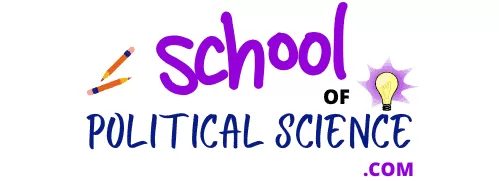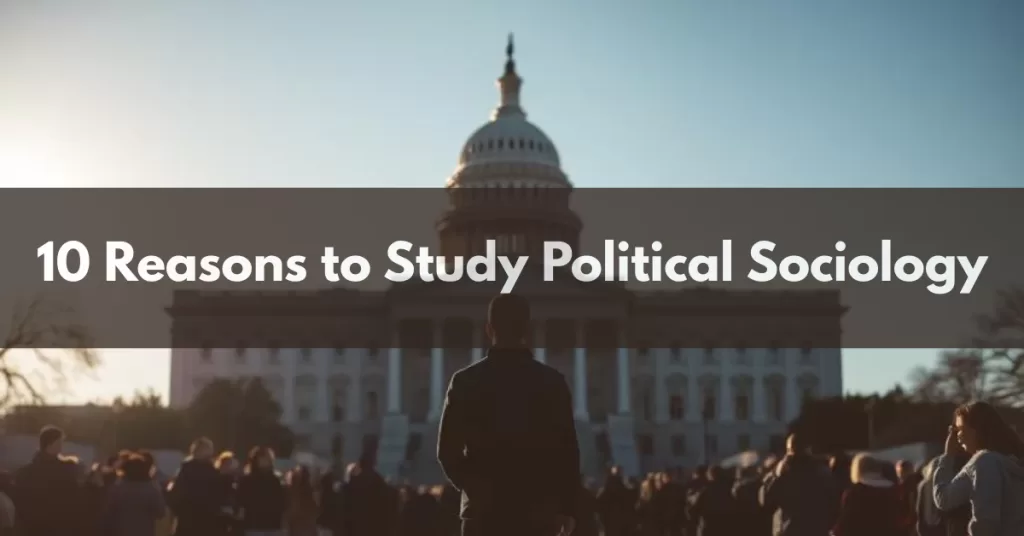Introduction
Let me begin with a simple question — have you ever wondered why some political decisions feel so distant from your everyday life, while others spark debates at your dinner table or even in your classroom? That’s exactly where political sociology comes into play.
As your teacher and guide in this blog post, I want you to walk with me through a fascinating path where we’ll explore how society and politics dance together — influencing everything from policies to protests, elections to everyday equality. If you’ve ever debated about voting rights, caste-based reservation, women’s representation in Parliament, or even freedom of speech on social media — you’re already engaging with political sociology.
Let’s break down the concept and then dive deep into the 10 importance of political sociology that every political science student (and curious citizen!) should understand.
What Is Political Sociology?
Before we go into the importance, let’s clear our basics.
Political sociology is the study of the relationship between society and politics. It examines how power and authority are distributed, how policies affect people, and how people influence political processes. It’s a subfield of sociology that brings in the analytical tools of political science, economics, history, and anthropology.
It doesn’t just look at institutions like governments and parties — it looks at you, me, us — and how we interact with those institutions. That’s why understanding the importance of political sociology is essential not only for political science students but for anyone who wants to be a thoughtful, informed citizen.
Must Read- Political Sociology: Understanding Its Meaning, Nature, and Scope
10 importance of political sociology
1. Helps Understand Power Structures in Society
In every society, power is not equally distributed. Some groups hold more influence than others — sometimes because of wealth, sometimes caste, class, race, gender, or religion.
Political sociology helps you analyze these power structures. For instance, why do certain political elites continue to dominate elections? Why are tribal communities often underrepresented in national politics?
By studying these questions, you gain insights into how power operates and how it can be redistributed for a more just society. This is the first importance of political sociology — it trains your eyes to see power not just in politics but everywhere around you.
Must Read- Power and Authority: The Structures of Governance
2. Bridges the Gap Between Society and Government
Often, there’s a disconnect between what people need and what policies deliver. Political sociology plays a crucial role in bridging this gap.
It helps us understand:
- Why governments may fail to address poverty despite good intentions.
- How social movements (like the farmers’ protest or anti-CAA protests) influence public policy.
- What roles institutions like the media and judiciary play in shaping perceptions.
It emphasizes that policy isn’t made in a vacuum — it’s deeply affected by societal demands, class structures, and cultural values.
3. Encourages Civic Participation and Awareness
Have you noticed how some people actively vote, campaign, and discuss public issues, while others stay silent? One of the vital importance of political sociology is its ability to encourage civic engagement.
Political sociology teaches that politics isn’t just for politicians — it’s for every citizen. It explains:
- Why participation matters in a democracy.
- How marginalized voices can organize and advocate.
- What motivates people to vote or protest.
As students, when you understand the mechanisms of political action, you’re more likely to become engaged, informed citizens — the very backbone of a healthy democracy.
4. Explores the Role of Identity in Politics
Have you ever thought about how caste, religion, gender, or language shape political choices?
Political sociology doesn’t treat voters as a homogeneous group. It studies how social identities influence political behavior. For example:
- Why do caste-based parties thrive in certain Indian states?
- How does religion impact voting patterns in multi-faith societies?
- What role does gender play in political representation?
This area of study is vital in multicultural societies like India, where identities deeply impact politics.
5. Helps Analyze Political Change and Revolutions
Change is the only constant in politics — and political sociology gives you the tools to understand why and how change happens.
Whether it’s the fall of the Soviet Union, the Arab Spring, or India’s anti-corruption movement, political sociology analyzes:
- The social conditions that cause revolutions or reforms.
- The role of leadership and ideology.
- The mobilization of the masses.
It allows you to understand that revolutions aren’t random — they are products of deep-rooted social and political factors. Understanding this is key to predicting and managing political transformation.
6. Provides Insights into Public Policy Formulation
Another major importance of political sociology lies in shaping public policy.
How?
Because public policy must reflect social realities. For example:
- If you’re making an education policy, you must understand class and caste inequalities.
- If you’re designing a women’s safety program, you must understand gender-based violence patterns in society.
Political sociology equips policymakers and analysts to design inclusive, responsive, and realistic policies that actually work.
Must Read- Policy Making Process in Public Administration: 5 key Steps
7. Enhances Understanding of Political Ideologies
Ideologies like liberalism, socialism, conservatism, feminism — these aren’t just theories in books. They influence real decisions, laws, and leadership styles.
Political sociology helps students connect ideologies to social contexts. For example:
- Why is socialism more popular among working classes?
- Why do some societies support authoritarian leaders?
Through political sociology, we understand how and why different ideologies appeal to different social groups, leading to diverse political landscapes.
8. Explains the Evolution of State and Governance
Have you ever wondered why modern governments look so different from the kingdoms of the past?
Political sociology traces the evolution of state systems:
- From tribal systems to monarchies,
- From colonial rule to democracies,
- From welfare states to neoliberal governance.
It shows how historical, economic, and social forces shape political institutions over time. Understanding this helps us make sense of contemporary governance and the future direction of the state.
9. Promotes Tolerance and Pluralism
Here’s something we don’t talk about enough — politics can be divisive, but political sociology can be a unifier.
By analyzing different political systems, ideologies, and societies, political sociology encourages tolerance, empathy, and dialogue. It helps students appreciate:
- Why different people believe in different values,
- How political conflict arises and can be resolved peacefully,
- Why pluralism is essential in a globalized world.
In times of polarization and fake news, this is one of the most essential importance of political sociology — it helps you become not just a better student, but a better human.
10. Supports Careers in Public Affairs, Governance, and Research
Finally, let’s talk about your future.
If you’re considering careers in:
- Civil services
- Political analysis
- Policy research
- Journalism
- Academia
- NGOs or International Organizations
…then the importance of political sociology is massive for you. It offers a foundational understanding of political behavior, governance models, policy challenges, and citizen engagement — all critical in shaping real-world impact.
Many successful public leaders, administrators, and analysts attribute their perspective to a strong grounding in political sociology.
Conclusion
As your teacher in this journey, let me leave you with a thought — society and politics are not separate spheres. They are interdependent, overlapping, and constantly influencing each other.
Understanding the importance of political sociology helps you see this connection clearly. It empowers you with knowledge, sharpens your critical thinking, and makes you a conscious participant in shaping your world.
So next time you see a political ad, a protest, or a policy change — don’t just scroll past. Think deeper. Ask why. Engage. That’s political sociology at work.
Frequently Asked Questions (FAQs)
Q1. What is political sociology in simple words?
Political sociology is the study of how society and politics interact. It looks at how people influence politics and how politics shapes people’s lives.
Q2. Why is political sociology important for students?
It helps students understand power, governance, policy-making, and civic responsibility — all essential for informed participation in democracy.
Q3. Is political sociology relevant today?
Absolutely. In today’s world of protests, political polarization, identity politics, and global governance challenges, political sociology is more relevant than ever.
Q4. How is political sociology different from political science?
Political science focuses more on political institutions and processes, while political sociology emphasizes the role of social structures and citizen behavior in politics.
Q5. What careers can I pursue after studying political sociology?
Civil services, journalism, policy research, political consulting, social work, academia, and more.
References
- Almond, G. A., & Verba, S. (1963). The Civic Culture.
- Bottomore, T. B. (1993). Elites and Society.
- Mills, C. Wright. (1956). The Power Elite.
- Lipset, S. M. (1960). Political Man.
- Eisenstadt, S. N. (1971). Political Sociology.

